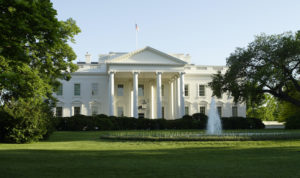
FDA authorizes single-dose COVID-19 vaccine, Governor Abbott revokes Texas mask mandate, and more…
IN THE NEWS
The U.S. Food and Drug Administration (FDA) issued an emergency use authorization for a COVID-19 vaccine developed by Johnson & Johnson, making it the first single-dose vaccine that FDA has authorized. Following the approval, President Joe Biden announced in a press conference that Merck, a competitor of Johnson & Johnson, will assist in the manufacturing of the single-dose vaccines, a rare alliance that the President likened to “the type of collaboration between companies we saw in World War II.” President Biden said that, with the addition of the Johnson & Johnson vaccines, the federal government will have enough supplies to vaccinate “every adult in the United States by the end of May.”
Texas Governor Greg Abbott issued an executive order lifting COVID-19 restrictions, including a statewide mask mandate and all business capacity limitations. Governor Abbott stated that “with the medical advancements of vaccines and antibody therapeutic drugs,” focus can shift to restoring the “livelihoods and normalcy for Texans.” Shortly after Governor Abbott’s announcement, Mississippi Governor Tate Reeves announced similar reopening measures. Centers for Disease Control and Prevention Director Rochelle Walensky cautioned against such measures. Walensky emphasized that, with the decline in cases of COVID-19 and the appearance of new variants, removing safety guidelines could threaten the “hard-earned ground we have gained.”
After significant negotiation with the legislature, California Governor Gavin Newsom announced a new $6.6 billion spending package to help reopen California public schools by the end of March. The spending package will extend $4.6 billion to all public schools struggling with teaching during the pandemic. School districts are not required to reopen, but if schools allow a set amount of in-person instruction by March 31, they can receive additional funding. The spending package will not require districts to make an agreement with teacher’s unions or vaccinate all staff before reopening, but does set aside 10 percent of the state’s vaccine supply for school teachers and staff. Cecily Myart-Cruz, president of United Teachers of Los Angeles, called the plan “a recipe for propagating structural racism,” as it financially rewards schools who can more easily reopen given lower infection rates—typically white and wealthier schools.
The U.S. Department of Agriculture (USDA) withdrew a Trump Administration environmental impact statement that would have allowed a mining project in Arizona to move forward. USDA withdrew the statement just before the government’s deadline to reply to an emergency request by Apache Stronghold—a community organization advocating for preservation of Native land and rights—to halt the mining project due to its expected negative impact on Native land. The Biden Administration’s decision halts the progress of the mining project until the Administration can more fully review the environmental impact of the mining project. Arizona Governor Doug Ducey criticized the move because the project was expected to create 1,450 new jobs and generate an economic impact of more than $1 billion each year. U.S. Representative Raúl Grijalva (D-Ariz.) praised the decision, reportedly stating that the action is “about ending the cycle of ignoring tribal input whenever it suits polluters.”
The U.S. Senate confirmed Cecilia Rouse, dean of the Princeton School of Public and International Affairs, to chair the White House Council of Economic Advisors, making her the first Black person and the fourth woman to hold the position since the Council’s creation in 1946. The Senate approved Rouse in a near unanimous vote, with only four Republican Senators voting against her. Senator Sherrod Brown (D-Ohio) reportedly praised the nomination, remarking that Rouse’s “passion for service, and her commitment to the people who make this country work, were obvious to all of us, Republicans and Democrats alike.”
The U.S. House of Representatives introduced two immigration bills that would provide a pathway to citizenship for undocumented farm workers and Dreamers, undocumented immigrants who were brought to the United States as children. With President Biden’s support, the House last month had introduced a bill that would have provided a pathway to citizenship for all 11 million undocumented immigrants living in the United States. But House Democrats instead opted to pursue more targeted legislation in the meantime, acknowledging that they may not have the requisite support to pass the President’s more ambitious proposal. U.S. Representative Tom O’Halleran (D-Ariz.), a member of the centrist Blue Dog Coalition caucus, reportedly said that the comprehensive bill was “put together by a few people” and is “just not quite ready yet.”
The Federal Trade Commission (FTC) issued an order to five e-cigarette companies, including JUUL Labs, Inc., to report sales and advertising data as part of the commission’s ongoing probe into whether e-cigarette manufacturers have targeted underage consumers. The FTC specifically requested data that include “social media accounts used to sell e-cigarettes, affiliate programs, influencer marketing, and college campus programs.” In a study published in December 2020, the Centers for Disease Control and Prevention found that nearly 24 percent of American high school students and 7 percent of middle school students use e-cigarette products, which amounts to a total decrease of 1.8 million underage users nationwide since 2019.
The U.S. Supreme Court ordered Santa Clara County in California to allow indoor church worship services, blocking the county’s public health restriction. A group of churches challenged the restriction, which prohibited indoor worship services, for violating their constitutional right to practice religion freely. The county argued that the restrictions were necessary “to thwart the most deadly pandemic in more than a century” and did not impose heightened restrictions on religious institutions. The Court said that its decision was dictated by a recent case that allowed other California churches to resume indoor worship services.
The Tennessee State Senate voted to approve a bill requiring students in public middle or high school athletics to compete under their sex assigned at birth. The legislators introduced the bill because “allowing boys to compete in girls’ athletic competitions discriminates against girls by regularly resulting in boys displacing girls in competitive events.” The law, however, will not make any exception for transgender athletes who have have undergone hormone replacement therapy or received gender-affirming care. Legislators passed the bill despite there being no evidence of transgender athlete particpation in public schools. The bill’s passage came amid a recent increase of anti-transgender athlete laws. Jensen Luke Matar, coordinator at the American Civil Liberties Union of Mississippi, reportedly called the wave of new laws a reaction to President Biden’s recent executive orders restoring transgender rights.
WHAT WE’RE READING THIS WEEK
In a forthcoming article in the University of Illinois Law Review, Jacob S. Sherkow, professor of law at the University of Illinois, evaluated the efficacy of regulatory sandbox policies—which allow companies to test emerging technologies within a supervised environment—in the context of public health. Sherkow focused his analysis on the U.S. Food and Drug Administration’s emergency use authorization of the various treatments and vaccines for COVID-19 as the prime example of a regulatory sandbox, enabling biotechnology companies to gather increasingly richer data as they deploy their technologies in the real world. Sherkow concluded that the agency’s experience with these authorizations for COVID-19 treatments and vaccines demonstrates the vast potential for regulatory sandbox policies in other contexts.
In a report for the Brookings Institution, Rashawn Ray, fellow in governance studies, and his coauthors examined the disparate impact of COVID-19 on Black Americans in Detroit. Ray and his coauthors found that, in Detroit, Black people represent a disparate proportion of COVID-19 diagnoses and deaths. Ray and his coauthors recommended establishing racially equitable access to health care, including greater numbers of testing centers in predominantly Black neighborhoods. Ray and his coauthors emphasized that, in distributing a vaccine, policymakers must acknowledge that medical distrust is rational due to a legacy of mistreatment and malfeasance and must focus on effective and transparent messaging about the vaccine through social media and local leaders.
In a report, Bridget C.E. Dooling, research professor, and Laura Stanley, senior policy analyst, at the George Washington Regulatory Studies Center, discussed how the increased use of telemedicine during the coronavirus pandemic can be extended to treat opioid use disorders. Dooling and Stanley highlighted that doctors could not prescribe certain key medications used to treat opioid use disorders via telemedicine until the pandemic. The restrictions against providing these drugs without an in-person appointment, however, will return after the pandemic ends. Dooling and Stanley argued that the U.S. Drug Enforcement Administration and Substance Abuse and Mental Health Services Administration have the legal authority to extend telemedicine policies without approval from Congress and that they should do so to increase access to these important treatments.
FLASHBACK FRIDAY
In an essay in The Regulatory Review, Mark Nevitt, law professor at Syracuse University, provided a timeline of the challenges faced by transgender military service members during 2017. In January, transgender individuals could seemingly serve openly due to Obama-era policies, Nevitt noted. Nevitt recounted that in July, however, then-President Donald J. Trump tweeted that the government would not allow transgender individuals to serve. Between July and December, the ban remained in contention as a series of interim guidances and court rulings came out in support of and opposition of the ban. In January 2018, Nevitt celebrated that transgender personnel were finally allowed to enlist and serve openly in the military.



